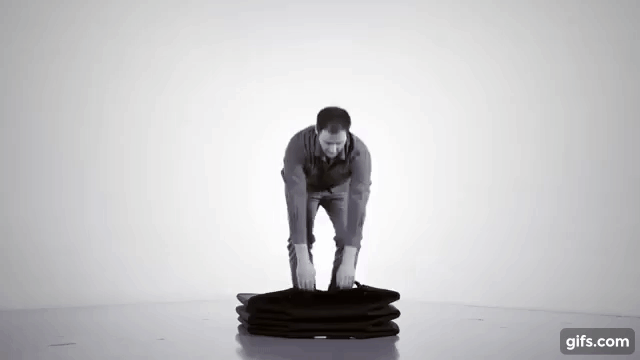What a year of war has shown us about Ukraine, Russia and their battle of wills
An anniversary is an artificial moment in time, marking nothing but the passage of 365 days.We cling to such occasions as a place to pause, to look back at all that has transpired in a year and look forward at what is to come. But while some anniversaries celebrate a progression and others acknowledge an arrival near the end, the one-year anniversary of Russia’s Feb. 24 invasion of Ukraine offers neither of these alternatives. Today, the world marks instead a determined doubling down by all parties to this war.Fresh off Russian President Vladimir Putin’s appearance at a Moscow war rally, the state-controlled news media was abuzz about the full reopening of the bridge connecting Russia proper to the Ukrainian peninsula of Crimea, which Putin annexed in 2014. The bridge, the most tangible symbol of Russia’s imperial goals, was blown up in a spectacular October explosion — one hailed in every corner of war-ravaged Ukraine.Ukraine had reason to cheer again this week as partisan bombs rang out in occupied Mariupol, a city that was devastated in a deadly Russian siege, then annexed in a sham referendum last fall.Mariupol was the scene last month of a propaganda concert by the Russian artist Shaman. The singer declared to an interviewer that his words were his weapons, before wailing the lyrics from his latest song: “I’m Russian, in spite of the entire world.”A year into the conflict, it has become a war of wills as much as a battle for territory. When the cold weather set in and Russia began savagely attacking Ukrainian power plants and the country’s electricity grid, the joke in some quarters was that Ukrainian families would have their revenge by hunkering down, huddling up and making a new generation of Ukrainian babies.That world-beating display of resilience has infected the country’s once timid western backers and supporters.And it was on display in a viral video Thursday of American military volunteer Sarah Ashton Cirillo, who will ring in one year of war in bloodied bandages, having had part of her right hand injured by shrapnel from a Russian shell.“You know what? They can’t hurt us,” Ashton Cirillo reassures one of her superiors, with surprising calm. “They can’t kill us. Victory is ours. It doesn’t f---ing matter, because we’re Ukraine and, ultimately, Putin is going to be the one dead … And this is a small price for liberation and for freedom.”Symbolically, this truth has been voiced countless times in the past year.At the United Nations General Assembly, where an emergency vote was being held Thursday to call for an end to the war — another diplomatic declaration certain to be discarded — it was the minister of foreign affairs of tiny North Macedonia who summed it up best.“Today it is Ukraine,” said Bujar Osmani, representing a country that is no stranger to invasions and foreign rulers. “Tomorrow it could be any of our states.”Literally, the price tag to ensure Ukrainian sovereignty over the past year has been enormous — 143.6 billion euros ($206 billion Canadian). That’s about as much as the Canadian government has offered, over a decade, to help the provinces fix the Canadian health-care system.The bulk of that cash, military equipment and other bilateral aid has come from the United States, the United Kingdom, Germany, Canada and Poland (in that order), according to statistics from Germany’s Kiel Institute for the World Economy.And despite grunts of discontent, it is inconceivable that support for Ukraine dries up in the near future given the prevailing conditions on the ground in Ukraine and behind the Kremlin walls.“Today, there have been 50,000 shots of Russian artillery. This is a fact,” Josep Borrell, the European Union’s high representative for foreign affairs, said at the United Nations on Thursday. “Fifty thousand shots of artillery — the same number as yesterday, and the same number as tomorrow.”He rebuked the “naivete” of those who call for an end to the military support for Ukraine in order to get Russia to the agree to peace negotiations — something he said Moscow has shown no real willingness to achieve.“We have to support Ukraine militarily as long as Russia bombs,” Borrell said. “How can we stop military support to someone who is being attacked every day?”A year ago, the West was debating whether or not to send lethal weaponry to Ukraine. Today, after agreeing to send artillery systems, missiles and tanks, the debate in the West is shifting. No longer is it a question of whether it’s a good idea to provide Ukraine’s air force with superior-quality western fighter jets, which would give the power to defend its airspace, but when.Is the western pressure, and the enhanced Ukrainian might, having an effect?In parts of the Siberian Republic of Buryatia, it has been reported that the annual Russian festival of Maselnitsa, where people eat pancakes and look forward to the coming spring, was cancelled out of respect for the soldiers arriving home in body bags.Tough to justify celebrating t


An anniversary is an artificial moment in time, marking nothing but the passage of 365 days.
We cling to such occasions as a place to pause, to look back at all that has transpired in a year and look forward at what is to come.
But while some anniversaries celebrate a progression and others acknowledge an arrival near the end, the one-year anniversary of Russia’s Feb. 24 invasion of Ukraine offers neither of these alternatives.
Today, the world marks instead a determined doubling down by all parties to this war.
Fresh off Russian President Vladimir Putin’s appearance at a Moscow war rally, the state-controlled news media was abuzz about the full reopening of the bridge connecting Russia proper to the Ukrainian peninsula of Crimea, which Putin annexed in 2014.
The bridge, the most tangible symbol of Russia’s imperial goals, was blown up in a spectacular October explosion — one hailed in every corner of war-ravaged Ukraine.
Ukraine had reason to cheer again this week as partisan bombs rang out in occupied Mariupol, a city that was devastated in a deadly Russian siege, then annexed in a sham referendum last fall.
Mariupol was the scene last month of a propaganda concert by the Russian artist Shaman. The singer declared to an interviewer that his words were his weapons, before wailing the lyrics from his latest song: “I’m Russian, in spite of the entire world.”
A year into the conflict, it has become a war of wills as much as a battle for territory.
When the cold weather set in and Russia began savagely attacking Ukrainian power plants and the country’s electricity grid, the joke in some quarters was that Ukrainian families would have their revenge by hunkering down, huddling up and making a new generation of Ukrainian babies.
That world-beating display of resilience has infected the country’s once timid western backers and supporters.
And it was on display in a viral video Thursday of American military volunteer Sarah Ashton Cirillo, who will ring in one year of war in bloodied bandages, having had part of her right hand injured by shrapnel from a Russian shell.
“You know what? They can’t hurt us,” Ashton Cirillo reassures one of her superiors, with surprising calm. “They can’t kill us. Victory is ours. It doesn’t f---ing matter, because we’re Ukraine and, ultimately, Putin is going to be the one dead … And this is a small price for liberation and for freedom.”
Symbolically, this truth has been voiced countless times in the past year.
At the United Nations General Assembly, where an emergency vote was being held Thursday to call for an end to the war — another diplomatic declaration certain to be discarded — it was the minister of foreign affairs of tiny North Macedonia who summed it up best.
“Today it is Ukraine,” said Bujar Osmani, representing a country that is no stranger to invasions and foreign rulers. “Tomorrow it could be any of our states.”
Literally, the price tag to ensure Ukrainian sovereignty over the past year has been enormous — 143.6 billion euros ($206 billion Canadian). That’s about as much as the Canadian government has offered, over a decade, to help the provinces fix the Canadian health-care system.
The bulk of that cash, military equipment and other bilateral aid has come from the United States, the United Kingdom, Germany, Canada and Poland (in that order), according to statistics from Germany’s Kiel Institute for the World Economy.
And despite grunts of discontent, it is inconceivable that support for Ukraine dries up in the near future given the prevailing conditions on the ground in Ukraine and behind the Kremlin walls.
“Today, there have been 50,000 shots of Russian artillery. This is a fact,” Josep Borrell, the European Union’s high representative for foreign affairs, said at the United Nations on Thursday. “Fifty thousand shots of artillery — the same number as yesterday, and the same number as tomorrow.”
He rebuked the “naivete” of those who call for an end to the military support for Ukraine in order to get Russia to the agree to peace negotiations — something he said Moscow has shown no real willingness to achieve.
“We have to support Ukraine militarily as long as Russia bombs,” Borrell said. “How can we stop military support to someone who is being attacked every day?”
A year ago, the West was debating whether or not to send lethal weaponry to Ukraine. Today, after agreeing to send artillery systems, missiles and tanks, the debate in the West is shifting. No longer is it a question of whether it’s a good idea to provide Ukraine’s air force with superior-quality western fighter jets, which would give the power to defend its airspace, but when.
Is the western pressure, and the enhanced Ukrainian might, having an effect?
In parts of the Siberian Republic of Buryatia, it has been reported that the annual Russian festival of Maselnitsa, where people eat pancakes and look forward to the coming spring, was cancelled out of respect for the soldiers arriving home in body bags.
Tough to justify celebrating the melting snow, when Russian blood soaks Ukrainian soil.
In these and other regions of the vast country where young men are being sent to do Putin’s imperial bidding, the effects of the war in Ukraine are there for everyday Russians to consider and judge. They can claim a powerlessness to change their country’s fate, but they cannot claim ignorance.
And one year on from the start of the war, no one should turn a blind eye to the war, or claim not to have an interest in its resolution, said Borrell, speaking just head of the successful UN vote.
“This is not a war that doesn’t affect me because I’m not being bombed,” he said. “It affects the whole world economy. It has global effects. It’s a toxic war for all people in the world.”
Allan Woods is a Montreal-based staff reporter for the Star. He covers global and national affairs. Follow him on Twitter: @WoodsAllan




















